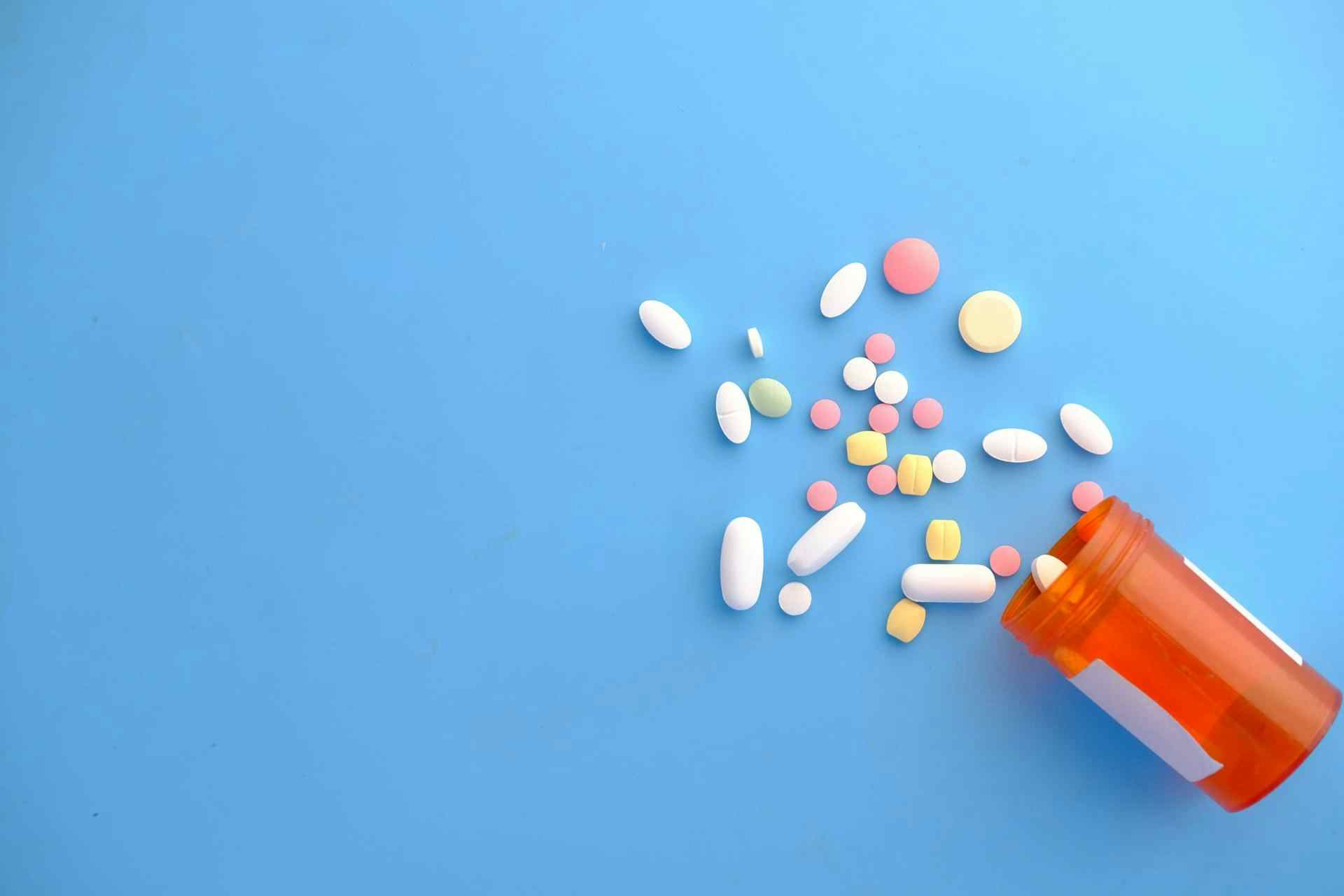Metformin helps manage blood sugar in the body. It is used to treat type 2 diabetes, gestational diabetes, and polycystic ovary syndrome (in some cases).
There are a few essential foods and drinks to avoid while taking metformin to reduce side effects and ensure we control blood sugar levels in the body.
It is also essential to be aware of potential drug interactions with metformin to make your time taking this medication as safe and comfortable as possible.
Whether you're looking for the latest vitamins and supplements, want to stock up on over the counter medication, or are looking for a digital solution for your regular prescription, our providers have you covered. Compare brands below and click on your favourite to shop their best offers now!
Metformin and diabetes
Doctors use metformin to treat type 2 diabetes and gestational diabetes and to help prevent diabetes if you're at risk of developing it or are experiencing prediabetes.
Type 2 diabetes means that the body fails to produce enough insulin or that the insulin the body produces doesn't work correctly. This is also known as insulin resistance when the body cannot effectively manage sugar or insulin levels.
Doctors manage this condition through diet changes or meds, and avoiding high blood sugar levels (hyperglycemia) is crucial. Metformin is often prescribed if dietary changes and exercise don't control blood glucose levels adequately.
This medication aims to lower blood sugar levels by reducing the amount of glucose produced by the liver and improving how the body handles insulin. For many, diabetes doesn’t cause symptoms- but this doesn’t mean metformin isn’t doing its job.
Metformin also improves insulin sensitivity in the body. For those with type 2 diabetes, this medication can decrease the risk of heart disease.
Metformin is prescribed under many brand names, including. Riomet, Glumetza, and GlucophageIt is available via prescription as a liquid or oral pill. In addition, a doctor can give you standard or extended-release tablets of this drug.
Metformin and PCOS
This drug also reduces the symptoms of PCOS (polycystic ovary syndrome) in some cases.
PCOS is a common hormonal disorder that affects the ovaries. Many women struggle with this illness, which can cause wide-ranging symptoms such as painful periods, acne, irregular menstruation, and infertility.
Type 2 diabetes is also more common for those with PCOS. Metformin acts as a preventative medication for those who are at risk.
This drug is not FDA-approved as a treatment for PCOS in the United States. Despite this, it can positively affect those struggling with difficult PCOS symptoms.
Side effects of metformin
This medication is highly effective and well-tolerated by most people who take it. It is the first-choice treatment recommended by the American Diabetes Association.
However, there are a few common side effects of metformin. These can often be reduced by understanding how and when to take this medication and what to look for.
Side effects include gastrointestinal issues such as nausea, diarrhea, and stomach aches. Avoiding taking metformin on an empty stomach can reduce these adverse effects.
Unlike other diabetes drugs, metformin does not cause weight gain. This medication reduces appetite, leading to some instances of weight loss.
Metformin-associated lactic acidosis (MALA) is a rare side effect of this drug. This is due to increased lactic acid in the blood while taking metformin. Although lactic acidosis is a life-threatening complication, we can reduce this risk factor with specific lifestyle and dietary adjustments.
Age Times spoke to Toby Smithson, registered dietitian and certified diabetes care and education specialist, founder of Diabetes EveryDay and author of Diabetes Meal Planning and Nutrition for Dummies, who told us: "Metformin can cause vitamin B12 deficiency. Fish, meat, poultry, eggs, milk, and milk products are foods that are both diabetes-friendly and high in B12. For those who are vegan, B12 can be found in fortified breakfast cereals, nutritional yeast products, fortified almond or soy milk, tempeh, or vegan mayonnaise."
High-sugar foods
Unlike type 1 diabetes, type 2 diabetes is mainly lifestyle-related. The causes of this medical condition include obesity and poor diet.
Due to the nature of this illness, it is essential to avoid high-sugar foods while taking metformin so the medication can effectively manage sugar levels in the body.
The failure to limit sugar intake can also lead to problems with bodily functions, such as kidney disease. Therefore, limiting sugary foods, whether taking metformin for this condition or not, is essential.
Although metformin monitors blood sugar levels, sticking to a low-sugar diet is vital to help this drug work.
This does not include those using sugar to treat hypoglycemia (low blood sugar).
Foods that are high in sugar include:
- Cakes, pastries, cookies, and other carbs
- Drinks such as fruit juice, soda, and milkshakes
- Candy and chocolate
- Ice cream and rich desserts
- Sugary cereals and dried fruits
As well as these high-sugar foods, avoid simple and refined carbohydrates. Simple carbs include white bread, pasta, and white rice.
This is because refined grains contain fewer nutrients and more sugar than whole grains. Eating these foods makes it harder for metformin to manage blood sugar levels.
You should also avoid saturated and trans fats while taking metformin for diabetes mellitus and associated illnesses.
These foods can all worsen insulin resistance and raise blood glucose levels.
Healthy alternatives
When taking metformin, high-fiber foods such as brown rice, leafy greens, non-starchy vegetables, and whole-grain bread are much healthier alternatives to high-sugar food products.
These foods are complex carbohydrates containing more vitamins, nutrients, and fiber than simple carbs.
Lean proteins such as fish, yogurt, lentils, and skinless white meat can also help control blood sugar without increasing saturated fat intake.
Many healthcare professionals also recommend including healthy fats as an essential part of your diet. This includes foods like fish, nuts, avocados, and olive oil.
Olive oil also helps maintain low glucose levels in the blood, meaning this food plays a positive role in blood sugar management while taking metformin.
This food product can also prevent insulin resistance, leading to better diabetes management.
Managing sugar levels
Metformin reduces blood sugar levels. Therefore, it is essential to avoid foods that interfere with blood sugar management and stick to a healthy meal plan while taking this drug.
Karela is one such food. This bitter gourd lowers blood sugar levels in the body. While this may sound like a good thing, this food interferes with blood sugar management and stops diabetes from being controlled as well as it should be.
Karela is used to flavor certain foods; you can add it to fruit juice and tea. If in doubt, check the label of food products before purchasing and always speak to a healthcare provider about any dietary concerns.
The contraceptive pill also affects blood sugar levels in some cases, so a change in dosage may be necessary when using this form of contraception alongside metformin.
Metformin and alcohol
It is safe to drink alcohol and take metformin. However, this should not exceed one drink per day for women and two for men. Excessive alcohol consumption can increase blood sugar levels and make it harder for this medicine to do its job.
Drinking alcohol also prevents the liver from storing and releasing glucose, which can cause a build-up of glucose in the blood. In addition, many alcoholic drinks contain high sugar levels, so avoiding alcohol can reduce a crucial risk factor for this illness.
Binge drinking puts you at a greater risk of hypoglycemia while taking your metformin prescription.
Drinking alcohol on metformin can also increase the amount of lactic acid in the blood. Alongside metformin, this increases the risk of lactic acidosis, a rare but severe side effect of the drug.
Some studies state that grapefruit juice has the same effect when taking this medication. For this reason, it is best to avoid grapefruit on metformin, to maintain healthy sugar and lactic acid levels in the blood during treatment.
Metformin and other medication
There are a few medications you shouldn't take in conjunction with metformin.
As such, your doctor might need to monitor your blood sugar levels while taking the two drugs together. But it does not always mean this medication is not an option.
It is best to avoid steroid tablets such as prednisolone and diuretics such as furosemide. There are also some hormone complications associated with this drug. For example, those using hormones such as testosterone, estrogen, and progesterone can be at risk while taking metformin.
Medication used to treat heart failure and high blood pressure can also cause issues while taking this drug.
It can be dangerous to take metformin at the same time as other diabetes medications. Therefore, discussing potential drug interactions with a doctor or another healthcare professional before taking this medication is essential.
Doctors may consider a different drug or reduce the dosage of metformin depending on the medication interactions of individual patients. As with any medication decision, it is all decided on a patient-by-patient basis.
Understanding what to avoid while taking metformin
Metformin is a vital medication used to treat type 2 diabetes and ensure your body can manage blood sugar levels effectively.
When taking this drug, you should avoid a few food types, including simple carbohydrates, sugary cereals, and other high-sugar foods. Before starting your prescription for this drug, there are also some vital interactions to understand.
It is essential to know the foods to avoid while taking metformin to aid its role in diabetes management. It is also necessary to be aware of the various risk factors associated with this medication, such as lactic acidosis.
By understanding the foods to avoid while taking metformin, you can reduce the risk of experiencing severe side effects, improve diabetes management, and enjoy a good quality of life while taking this drug.









